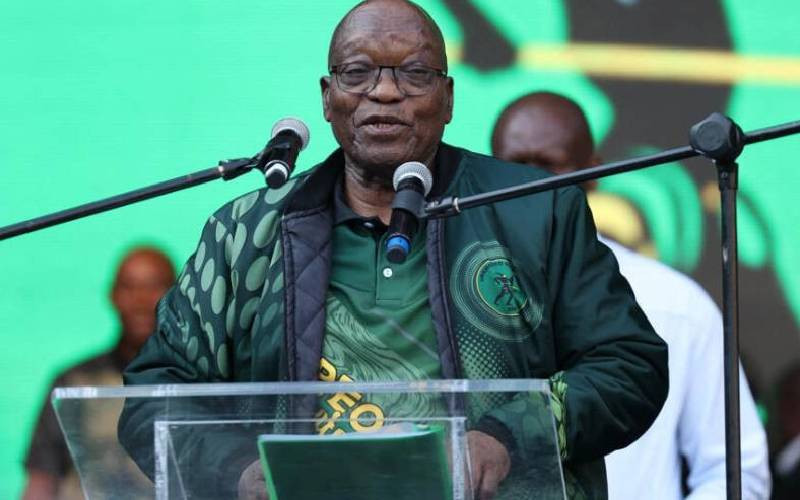Many years ago, while in law school in the US, my friend and colleague Ceda Ogada and I were debating issues around the role of the state in business. Ceda was clear that the state had no role getting involved in business beyond regulation, while I believed state involvement was necessary to protect the public interest. Our debate veered to Kenya Airways (KQ) which was then a parastatal making losses year after year. It was also inefficient, often late, and had low standards for services on board.
Ceda thought there was no reason to pump taxes into loss-making entities: that only encouraged more looting, and even more inefficiency. I argued then that it was necessary for our national pride for KQ to be kept afloat. The discussion ended when Ceda retorted: “National pride? Can people eat national pride? Is looting national pride?”
I have been thinking about this decades-old conversation as the saga around Kenya Airways has persisted.
For those a little younger, a brief history to provide context. By 1992 KQ was doing so badly that the government commissioned a study to figure out how to turn it around. Brian Davies, who was then affiliated with British Airways, did the study and recommended better management, better services and getting a strategic stakeholder with experience with international airlines. Brian Davies was subsequently appointed as CEO to implement his ideas, and many of us thought British Airways would be selected as the strategic partner, but we were pleasantly surprised when the Dutch carrier KLM won the bidding and took 26 per cent shareholding in KQ.
KLM insisted on appointing the Chief Finance Officer (CFO), as it trained KQ crew and upgraded KQ systems. There was a dramatic turn-around and KQ really became the pride of Africa as its services improved in all ways. Staff morale was also quite high and it was a pleasure flying KQ then. In 1999 Richard Nyaga, who had worked at KQ in the 1980s and had been an official at the International Air Transport Association (IATA) was appointed CEO to replace Brian Davies who not only left a solid foundation but a markedly improved KQ that could compete with any international airline.
But Mr Nyaga’s tenure saw a decline in KQ as standards went visibly down. His tenure was remarkably brief and he was replaced on an acting basis by the then Chief Financial Officer before Titus Naikuni was appointed in 2003.
Mr Naikuni’s first term was brilliant as KQ maintained standards and made profits, leading to numerous accolades for both the airline and Naikuni. There were changes to be made at KQ which he spearheaded including getting the long-time Chair of the board, Isaac Omolo Okero, to retire, which was not easy given his long tenure essentially operating almost like an executive chairperson.
But something went wrong in Naikuni’s second term, which coincided with the appointment of Mr Alex Mbugua as the airline’s first Kenyan CFO since privatisation. There were some ill thought out decisions such as hedging on fuel prices, and the outsourcing of flight crew and staff members which damaged morale. The outsourced crew were given much lower salaries than regular staff and could not organise to agitate for better terms. The morale of crew members went down palpably. Worse, the lack of transparency around the ownership of the company providing outsourced staff, damaged morale and led to rumours about conflict of interest from those at the top at KQ, with partnership from high level political players.
Then, there was the massive growth, which was not necessarily a bad idea, but it was hinged on leasing of planes—at massive costs--from opaque companies with names like Samburu Ltd, Tsavo Ltd and Amboseli Ltd. KQ management have reported that the companies were formed by the banks that lent it money to get the planes, but suspicion still reigns that high level political players are part of these leasing companies. The fact that it was only in April 2019 that KQ reported on these companies only increased suspicion.
KQ went from profit to substantial loss in about a year. Efforts to save it have failed over and over, and there are reports that this is all a plan to hollow the airline out and sell it off cheap to highly placed Kenyans. The idea of “giving” JKIA airport to “save” KQ was a bad idea, and not in the public interest.
Nationalising a loss-making entity is irresponsible and capricious. For if a company with private ownership can be cannibalised thus, what will they do to a fully nationalised one, treating it as we do Kenya Pipeline or National Bank where looting is the norm?
My friend Ceda was right; we should sell KQ, but not to “investors” or opaque entities. It should be to an existing international airline not dependent on state support. KQ should be competing with Singapore, Eva Air, Lufthansa, or Garuda Indonesia, not Ethiopian!
But alas, with the state capture of our country, I bet that if KQ is sold, it will be to some powerful family.
- The writer is former KNCHR chair. [email protected]
Stay informed. Subscribe to our newsletter
 The Standard Group Plc is a
multi-media organization with investments in media platforms spanning newspaper
print operations, television, radio broadcasting, digital and online services. The
Standard Group is recognized as a leading multi-media house in Kenya with a key
influence in matters of national and international interest.
The Standard Group Plc is a
multi-media organization with investments in media platforms spanning newspaper
print operations, television, radio broadcasting, digital and online services. The
Standard Group is recognized as a leading multi-media house in Kenya with a key
influence in matters of national and international interest.
 The Standard Group Plc is a
multi-media organization with investments in media platforms spanning newspaper
print operations, television, radio broadcasting, digital and online services. The
Standard Group is recognized as a leading multi-media house in Kenya with a key
influence in matters of national and international interest.
The Standard Group Plc is a
multi-media organization with investments in media platforms spanning newspaper
print operations, television, radio broadcasting, digital and online services. The
Standard Group is recognized as a leading multi-media house in Kenya with a key
influence in matters of national and international interest.








